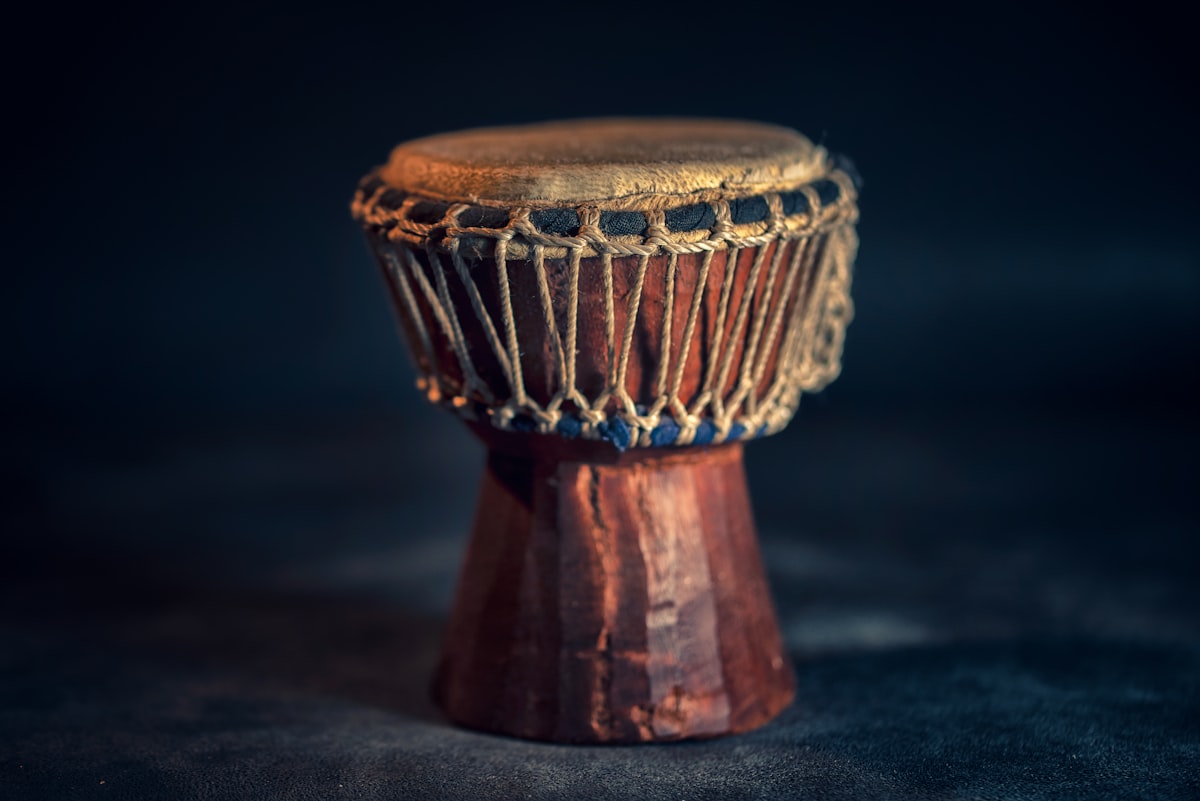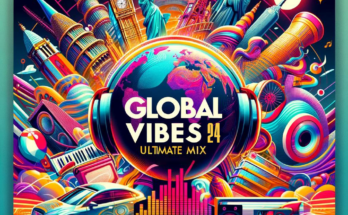The 2010s marked a significant rise in the popularity of Afro-Pop, a genre that blends traditional African rhythms and melodies with contemporary pop and hip-hop influences. This musical movement has gained traction not only in Africa but also globally, with artists like Wizkid, Davido, and Burna Boy becoming household names. The rise of Afro-Pop can be attributed to several factors, including increased access to technology, the evolution of African music, and the influence of African artists on pop culture.
Key Takeaways
- Afro-Pop rose to prominence in the 2010s, becoming a major force in global music.
- African music evolved throughout the decade, incorporating new sounds and styles.
- “Johnny” and “Jerusalema” were among the top African hits of the decade.
- Technology played a significant role in the growth of African music, with YouTube and streaming platforms providing new avenues for exposure.
- African artists played a crucial role in shaping pop culture in the 2010s, with their influence extending beyond the continent.
The Evolution of African Music in the 2010s
African music has undergone a remarkable evolution over the past decade. While traditional genres like Highlife, Juju, and Afrobeat continue to have a strong presence, new genres have emerged that reflect the changing tastes and influences of African artists. These genres include Afrobeats, Afro-fusion, and Afro-house, which incorporate elements of hip-hop, R&B, dancehall, and electronic music.
Afrobeats, in particular, has gained immense popularity both within Africa and internationally. It is characterized by its infectious rhythms, catchy melodies, and energetic dance moves. Artists like Wizkid and Davido have played a significant role in popularizing Afrobeats by infusing it with their unique styles and collaborating with international artists.
Top African Hits of the Decade: From “Johnny” to “Jerusalema”
The 2010s saw the release of several iconic African hits that captivated audiences worldwide. One such hit was Yemi Alade’s “Johnny,” which became an anthem for female empowerment. The song’s catchy chorus and infectious beat resonated with listeners across the globe and propelled Alade to international stardom.
Another standout hit of the decade was Master KG’s “Jerusalema,” featuring Nomcebo Zikode. The song’s uplifting message and irresistible dance moves took the world by storm, with people from all corners of the globe participating in the #JerusalemaChallenge. “Jerusalema” became a symbol of hope and unity during challenging times, further solidifying Afro-Pop’s place in global music.
The Impact of Technology on African Music: From YouTube to Streaming Platforms
Technology has played a crucial role in the rise of Afro-Pop and African music as a whole. With the advent of platforms like YouTube and streaming services like Spotify and Apple Music, African artists have been able to reach a global audience like never before. These platforms have provided a space for artists to showcase their talent, connect with fans, and gain recognition beyond their local markets.
YouTube, in particular, has been instrumental in promoting African music. Artists like Diamond Platnumz, Sauti Sol, and Nasty C have amassed millions of views on their music videos, attracting fans from all over the world. Streaming platforms have also contributed to the success of African artists by making their music easily accessible to a global audience.
The Role of African Artists in Shaping Pop Culture in the 2010s
African artists have played a pivotal role in shaping pop culture in the 2010s. Through their music, fashion, and overall artistry, they have challenged stereotypes and brought African culture to the forefront. Artists like Burna Boy and Tiwa Savage have used their platforms to address social issues and advocate for change, while also celebrating their African heritage.
In addition to their musical contributions, African artists have also made waves in the fashion industry. From Wizkid’s collaboration with Nike to create a limited-edition jersey to Davido’s partnership with Louis Vuitton, African artists have become style icons and ambassadors for African fashion on a global scale.
African Charts: The Most Popular Songs and Artists of the Decade

The African music scene has witnessed the rise of several artists and songs that have dominated the charts over the past decade. Artists like Wizkid, Davido, and Burna Boy have consistently topped the charts with their infectious hits, while newcomers like Naira Marley and Rema have quickly gained popularity.
Songs like “Ojuelegba” by Wizkid, “Fall” by Davido, and “Ye” by Burna Boy have become anthems for a generation, resonating with listeners across Africa and beyond. These songs not only showcase the talent of the artists but also highlight the diversity and richness of African music.
The Influence of Afro-Pop on Global Music: Collaborations and Crossovers
Afro-Pop has had a significant influence on global music, thanks in large part to collaborations and crossovers with international artists. Artists like Beyoncé, Drake, and Major Lazer have embraced Afro-Pop, collaborating with African artists to create chart-topping hits.
Beyoncé’s album “The Lion King: The Gift,” which featured several African artists, including Wizkid and Burna Boy, showcased the global appeal of Afro-Pop. The album’s fusion of African sounds with mainstream pop garnered critical acclaim and further solidified Afro-Pop’s place in global music.
The Rise of Afrobeats: From Nigeria to the World
Afrobeats, a subgenre of Afro-Pop, has experienced a meteoric rise in popularity over the past decade. Nigerian artists have been at the forefront of this movement, with acts like Wizkid, Davido, and Burna Boy leading the charge.
Nigeria’s vibrant music industry, known as Nollywood, has played a significant role in popularizing Afrobeats globally. The country’s rich musical heritage, combined with its large population and diaspora, has created a fertile ground for the genre to thrive. Nigerian artists have capitalized on this, consistently releasing hits that have resonated with audiences worldwide.
The Future of African Music: Trends and Predictions for the Next Decade
Looking ahead, the future of African music looks promising. As technology continues to advance, African artists will have even more opportunities to showcase their talent and reach a global audience. Streaming platforms will play an increasingly important role in the distribution and promotion of African music, allowing artists to connect with fans on a more personal level.
In terms of trends, we can expect to see further fusion of African sounds with other genres, as artists continue to experiment and push boundaries. Collaboration between African artists and international acts will also continue to be a driving force in the global music scene, further cementing Afro-Pop’s place in popular culture.
The Legacy of the 2010s Afro-Pop Revolution and Its Impact on African Music
The rise of Afro-Pop in the 2010s has had a profound impact on African music and popular culture as a whole. It has provided a platform for African artists to showcase their talent, challenge stereotypes, and celebrate their heritage. The genre’s infectious rhythms and catchy melodies have captivated audiences worldwide, making Afro-Pop a force to be reckoned with in the global music scene.
As we enter a new decade, the legacy of Afro-Pop is poised to continue shaping the future of African music. With its fusion of traditional African sounds and contemporary influences, Afro-Pop has the potential to transcend borders and bring people together through the universal language of music. The 2010s Afro-Pop revolution has laid the foundation for a new era of African music, one that promises to be even more vibrant, diverse, and influential.
If you’re a fan of the 2010s Afro-Pop revolution and want to dive deeper into the African songs that dominated the decade, then you won’t want to miss this related article on MusicCharts24. This article takes a closer look at the songs that defined the era and explores their impact on the music industry. From chart-topping hits to underground gems, it’s a comprehensive guide to the Afro-Pop revolution. Check it out here and get ready to groove to the sounds of Africa.
FAQs
What is Afro-Pop?
Afro-Pop is a genre of music that originated in Africa and combines traditional African rhythms with contemporary pop music.
What is the 2010s Afro-Pop Revolution?
The 2010s Afro-Pop Revolution refers to the rise of African music on the global stage during the decade. African artists gained international recognition and their music dominated charts and playlists around the world.
Which African songs dominated the decade?
There were many African songs that dominated the decade, including “Johnny” by Yemi Alade, “Ojuelegba” by Wizkid, “Soco” by Starboy, “Coller la Petite” by Franko, and “Jerusalema” by Master KG.
Why did African music become so popular in the 2010s?
African music became popular in the 2010s due to a combination of factors, including the rise of streaming services, the increasing popularity of African culture around the world, and the efforts of African artists to collaborate with international musicians.
What impact did the 2010s Afro-Pop Revolution have on African music?
The 2010s Afro-Pop Revolution had a significant impact on African music, as it helped to elevate the genre to a global audience and paved the way for more African artists to gain international recognition. It also helped to break down stereotypes and misconceptions about African music and culture.



